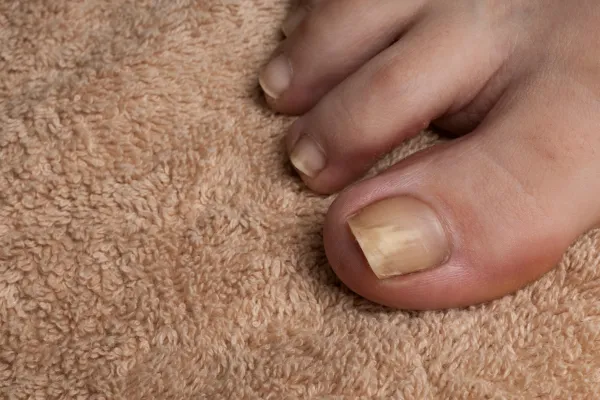Tips & Advice From West Haven Foot and Ankle Center

Fungal Nails vs. Nail Psoriasis: How to Tell the Difference
When you notice changes in the appearance of your nails, it can be confusing to determine whether you’re dealing with a fungal nail infection or nail psoriasis. Both conditions affect nail health and appearance, yet they stem from very different causes and require distinct treatment approaches. At West Haven Foot & Ankle, we’re committed to helping you understand these conditions so you can seek the most effective care.
What Are Fungal Nail Infections?
Fungal nail infections, also known as onychomycosis, are caused by fungi that invade the nail and the surrounding skin. They can develop when moisture and warmth create an environment where these organisms thrive. The infection usually begins at the edge of the nail and can spread inward, leading to discoloration, thickening, and crumbling of the nail. Common symptoms include:
Discoloration: Nails may turn yellow, brown, or white.
Thickening: The nail becomes noticeably thicker and may feel rough to the touch.
Brittleness: Infected nails can become brittle and break or crumble easily.
Distorted Shape: The nail may become misshapen as the infection progresses.
What Is Nail Psoriasis?
Nail psoriasis is a manifestation of psoriasis, a chronic autoimmune condition that primarily affects the skin. In the nails, psoriasis can lead to several distinctive changes. Rather than being caused by an infection, nail psoriasis results from the immune system mistakenly attacking healthy cells, causing inflammation and rapid cell turnover. Symptoms of nail psoriasis often include:
Pitting: Small dents or pits on the nail surface.
Color Changes: The nails may develop red or brown spots, sometimes accompanied by a yellowish tint.
Thickening and Crumbling: Like fungal infections, psoriasis can lead to thickened, brittle nails.
Separation from the Nail Bed: In some cases, the nail may lift away from the nail bed, a condition known as onycholysis.
Key Differences
While there is some overlap in symptoms between fungal nail infections and nail psoriasis, several key differences can help you tell them apart:
Onset and Progression:
Fungal Nails: Typically, the infection begins at the edge of the nail and progresses slowly. The affected nail often becomes discolored and thickened gradually.
Nail Psoriasis: Changes may occur more rapidly and are often accompanied by other signs of psoriasis on the skin, such as red, scaly patches.
Nail Surface and Texture:
Fungal Nails: The surface of a fungal nail infection is usually rough and crumbly, with possible debris accumulating under the nail.
Nail Psoriasis: Psoriatic nails often show pitting and may have an oily appearance. The texture tends to be less crumbly than in fungal infections.
Associated Skin Symptoms:
Fungal Nails: Fungal infections are generally confined to the nail and surrounding skin. You may notice athlete’s foot or other fungal issues on your feet.
Nail Psoriasis: Psoriasis is a systemic condition. If you have psoriatic nails, you might also see signs of psoriasis on other parts of your body.
Response to Treatments:
Fungal Nails: Antifungal medications, whether topical or oral, are effective in treating fungal nail infections. Improvement is often gradual, and treatment may take several months.
Nail Psoriasis: Treatment for nail psoriasis typically involves managing the underlying psoriasis with medications like topical steroids or systemic treatments, along with specific therapies for nail changes.
Why Accurate Diagnosis Matters
Proper diagnosis is crucial because the treatments for fungal nail infections and nail psoriasis differ significantly. A misdiagnosis may lead to ineffective treatment and prolonged discomfort. At West Haven Foot & Ankle, our expert podiatrists use a combination of physical examinations, patient history, and, if needed, laboratory tests to accurately diagnose your condition and tailor a treatment plan that addresses your specific needs.
Taking Action for Healthier Nails
If you’re noticing changes in your nails that concern you, don’t wait to get them checked. Early diagnosis can prevent further damage and help you maintain healthy, functional nails. Whether it’s a fungal infection or nail psoriasis, understanding your condition is the first step toward effective management.
For more detailed insights and practical tips on how to care for your nails and prevent common issues like bunions, we invite you to explore our blog post, "Exercises to Strengthen Your Feet and Prevent Bunions". At West Haven Foot & Ankle, we are dedicated to providing comprehensive care that improves your quality of life—one step at a time.
Ask West Haven Foot and Ankle Center And Their Team
Fill in the form to request a call from our team. One of our team members will call you for FREE and answer any questions or concerns you may have about your condition
Where To Find West Haven Foot and Ankle Center

If you have any questions before scheduling an appointment or for general inquiries, please use the contact us button below. Our team will promptly reach out to assist you.
Opening Hours
Monday: 8am - 5pm
Tuesday: 8am - 5pm
Wednesday: Closed
Thursday: 8am - 5pm
Friday: 8am - 5pm
Saturday: Closed
Sunday: Closed

